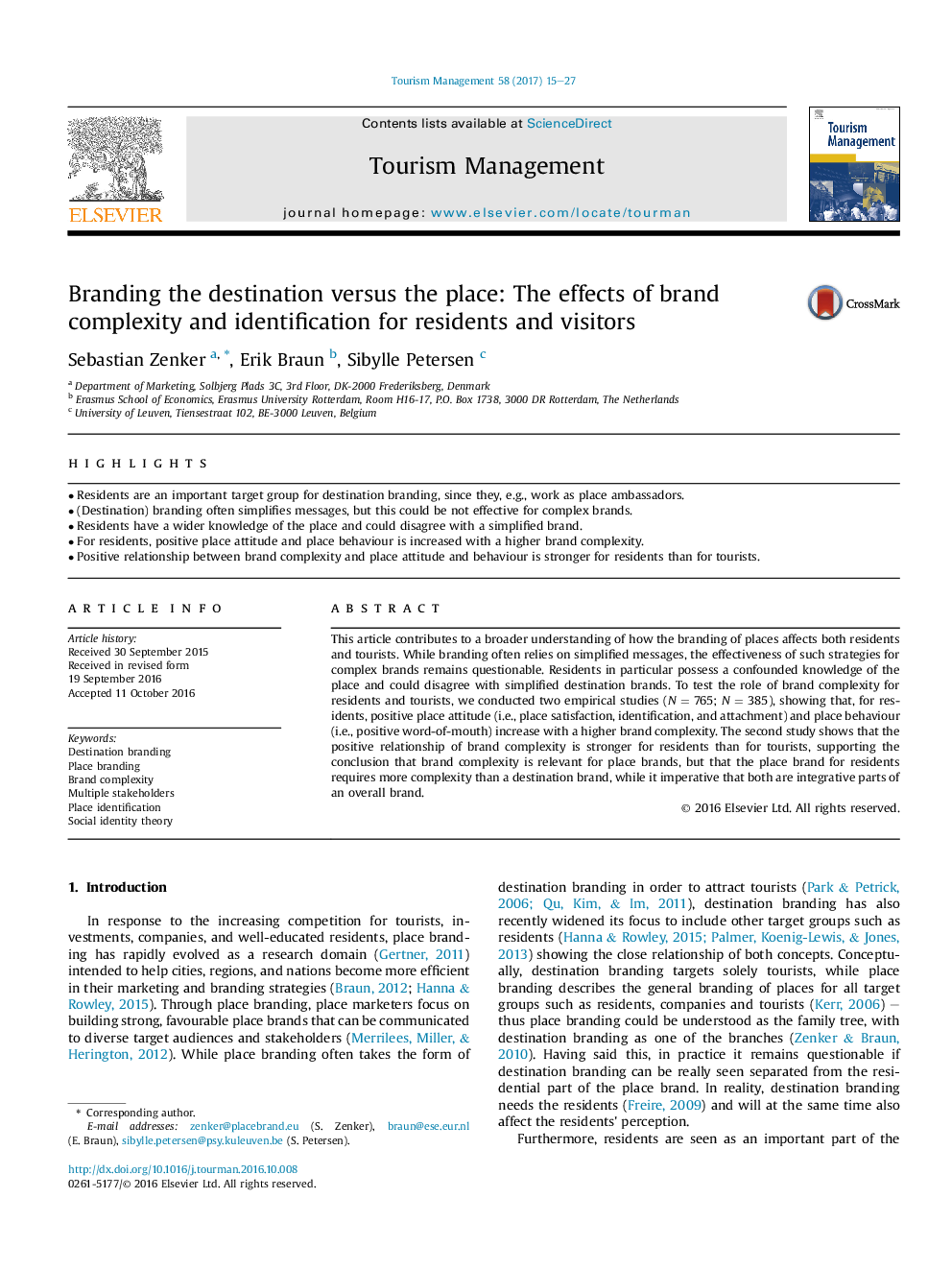| Article ID | Journal | Published Year | Pages | File Type |
|---|---|---|---|---|
| 5108706 | Tourism Management | 2017 | 13 Pages |
Abstract
This article contributes to a broader understanding of how the branding of places affects both residents and tourists. While branding often relies on simplified messages, the effectiveness of such strategies for complex brands remains questionable. Residents in particular possess a confounded knowledge of the place and could disagree with simplified destination brands. To test the role of brand complexity for residents and tourists, we conducted two empirical studies (NÂ =Â 765; NÂ =Â 385), showing that, for residents, positive place attitude (i.e., place satisfaction, identification, and attachment) and place behaviour (i.e., positive word-of-mouth) increase with a higher brand complexity. The second study shows that the positive relationship of brand complexity is stronger for residents than for tourists, supporting the conclusion that brand complexity is relevant for place brands, but that the place brand for residents requires more complexity than a destination brand, while it imperative that both are integrative parts of an overall brand.
Related Topics
Social Sciences and Humanities
Business, Management and Accounting
Strategy and Management
Authors
Sebastian Zenker, Erik Braun, Sibylle Petersen,
